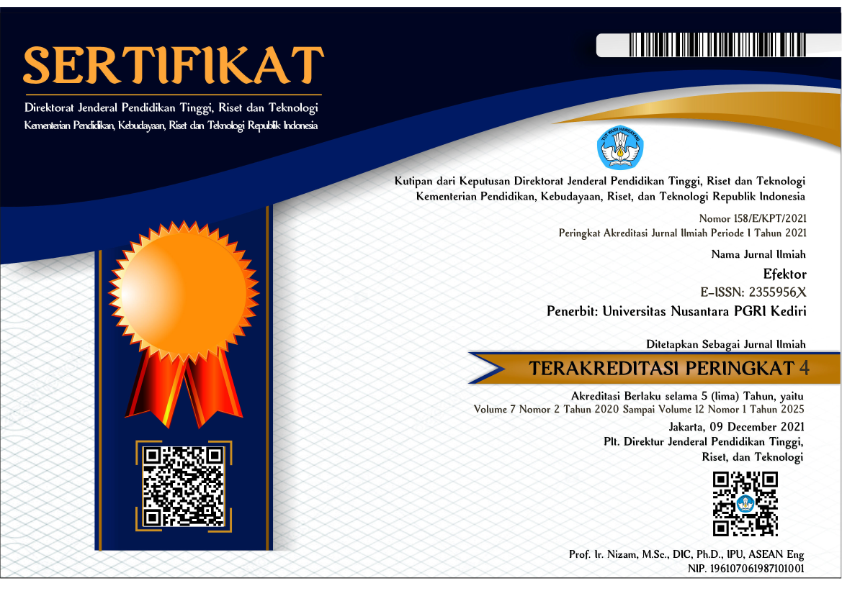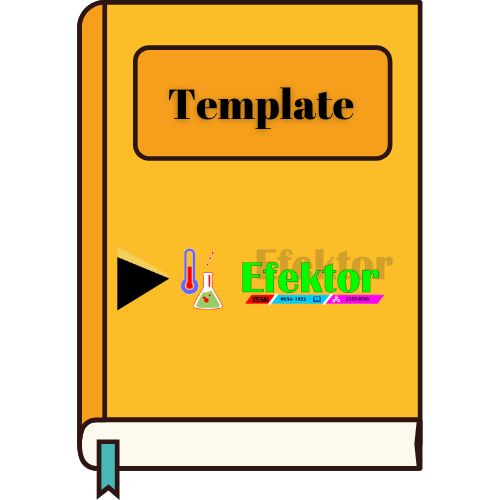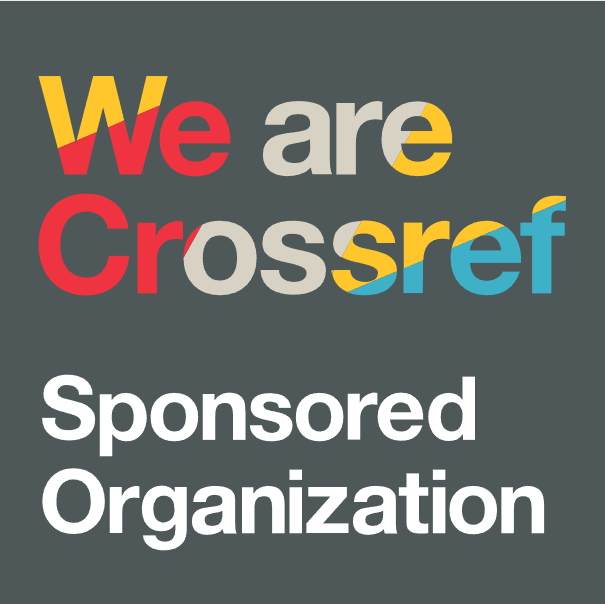EKSPERIMENTASI MODEL PEMBELAJARAN THINK-PAIR-SHARE DENGAN MODUL (TPS-M) DITINJAU DARI KECERDASAN INTERPERSONAL
DOI:
https://doi.org/10.29407/e.v2i2.87Keywords:
Think-Pair-Share, Module, Interpersonal Intelligence, Mathematics Learning AchievementAbstract
This study is aimed to find out: (1) which one of Think-Pair-Share method with Module (TPS-M), Think-Pair-Share (TPS) or direct learning results better performance; (2) which one of students who have high, medium, or low interpersonal intelligence is better in learning achievement; (3) which one of TPS-M, TPS, or direct learning results better learning achievement on high, medium, and low interpersonal inteligence students. This study used quasi experimental method with 3x3 factorial design. The population was the tenth grade engineering students of vocational school in Nganjuk on academic year 2012/2013. Sampling was stratified cluster random sampling method. The size of sample was 302 students with 101 students in the first experimental class, 105 students in the second experimental class and 96 students in the control class. A questionnaire interpersonal intelligence and achievement tests on mathematics were used to collect the data. The trial of questionnaire instrument includes content validity, internal consistency and reliability. Test trials include content validity, level of difficulty, different power and the reliability. The prerequisite of ANAVA test was normality test using Lilliefors test and the test of homogeneity used the Bartlett test. Balance test used one way analysis of variance with unbalanced cells. Hypothesis testing used two ways analysis of variance with unbalanced cells. Based on the data analysis, it concluded as follows. (1) TPS-M produces better learning achievement than TPS and direct teaching model. TPS learning model provides better learning achievement than the direct instructional model; (2) High interpersonal intelligence students have better mathematics learning outcomes than medium and low interpersonal intelligence students. Medium interpersonal intelligence students have better mathematics learning outcomes than low interpersonal intelligence students. (3) In each high, medium, and low interpersonal intelligence students have better learning achievement in learning model TPS-M than TPS and direct instructional model; furthermore, the high, medium, and low interpersonal intelligence students have better learning achievement in learning model TPS than direct instructional.
Keywords: Think-Pair-Share, Module, Interpersonal Intelligence, Mathematics Learning Achievement
References
Downloads
Published
Issue
Section
License
Authors who publish with this journal agree to the following terms:
- Copyright on any article is retained by the author(s).
- The author grants the journal, the right of first publication with the work simultaneously licensed under a Creative Commons Attribution License that allows others to share the work with an acknowledgment of the work’s authorship and initial publication in this journal.
- Authors are able to enter into separate, additional contractual arrangements for the non-exclusive distribution of the journal’s published version of the work (e.g., post it to an institutional repository or publish it in a book), with an acknowledgment of its initial publication in this journal.
- Authors are permitted and encouraged to post their work online (e.g., in institutional repositories or on their website) prior to and during the submission process, as it can lead to productive exchanges, as well as earlier and greater citation of published work.
- The article and any associated published material is distributed under the Creative Commons Attribution-ShareAlike 4.0 International License













